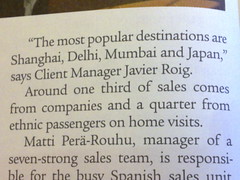Sci-fi with a strong social commentary and immigration undertones is right up my alley. The fact that it’s set in South Africa, has great special effects and is set in a very rich and intelligent universe is of course a plus. What’s not to like? 😉 I won’t spoil the movie in the first paragraph of this blog post (you are more than able to read about it online), so go and see it. Now.
That it’s become an absolute classic of our time already 2 weeks after release doesn’t hurt. The social critique of the movie was driven home for me in a post by Inti of Alt1040 (quoted and translated below):
It is no secret that ignorance and fear easily make us racists. The lack of knowledge of the lifestyles of people of different races and nationalities, together with the fear that we might feel for “possible” aggressions are the best nurture for intolerance […] outside of all logic and humanity. Ignorance and fear that are themselves based in prejudice and distorted values. When we know more about other people and find a reflection of ourselves, this fear should disappear together with any racist or xenophobic attitude. What happens when ignorance and fear have a justification and there is no way to clear these obstacles?
